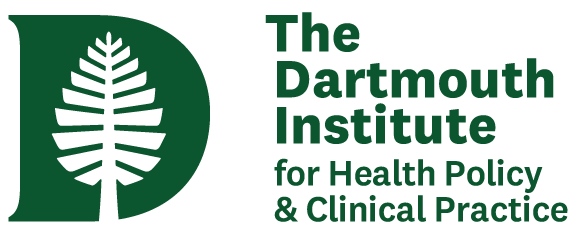Through a mix of on-campus and remote learning for the beginning of the 2020-2021 academic year, students in the 11-month MPH program are pursuing an array of enhanced courses and new elective options to customize their degree.
Expanded MPH Curriculum Launches Over 30 Redesigned Courses
After a two-year redesign process, The Dartmouth Institute’s 11-month Master of Public Health program recently launched an innovative curriculum design for the 2020-2021 academic year. The residential-based program completed a comprehensive transformation in consultation with faculty, staff, students, alumni, employers, and new accreditation requirements.
Grounded in the Institute’s renowned research that has helped shaped the fields of health policy and clinical practice, Dartmouth’s curriculum now features nearly three dozen enhanced courses through a combination of required and elective offerings. The redesign also emphasized giving students greater flexibility to customize their degree in topic areas of interest across the Institute’s core areas of health services research, quality improvement, and health policy.
“We are creating myriad opportunities for students to enrich their public health interests with timely and essential knowledge needed to address the pressing challenges we face in public health today,” says Honor Passow, PhD. Passow has helped engineer the curriculum redesign process alongside Executive Director of Education Craig Westling, DrPH.Students who began the program in July embarked on coursework that weaves together cross-cutting themes of health determinants, systems thinking, equity, healthy skepticism, ethics, collaboration and leadership, communication, evidence-based action, and much more.
“I’m especially inspired by the concept of applying systems thinking to solving the complex public health and health policy challenges of our time, which has been emphasized throughout the coursework,” says Mary Arakelyan MPH’21. “My Dartmouth education enables me to advance my goal of pursuing a future in international health systems research with a focus on issues impacting children.”
A key aim throughout the redesign process also centers around elevating the importance of incorporating social justice principles throughout the curriculum. Assistant Professor Alka Dev, DrPH, has been focused on reinforcing a social justice thread while looking for synergies across courses for how the Institute’s programs discuss and present disparities.
For the first time ever, a new “winterim” offering is now available between the fall and winter terms. Students can take short elective seminars, working closely with faculty mentors. This year’s winterim seminars include:
- New Topics in Health Care Variation: Research and Policy Dimensions, taught by David Goodman, MD, MS
- Strategies to Pursue Personal Health and Create a Culture of Wellbeing, taught by Catherine Pipas, MD, MPH
- The Patient Revolution: Capturing the Patient Voice in Healthcare Policy and Research, taught by Paul Barr, PhD, MSc
- Ethics & Policy During the COVID-19 Pandemic, taught by Bill Nelson, PhD, MDiv and Craig Westling, DrPH
- Policy for Clinicians: Influencing Formulation to Lead in Implementation, taught by Al Mulley, MD, MPP
- Recording clinical encounters: what are the implications and the potential benefits, taught by Glyn Elwyn, MD, PhD, MSc
- Systems Thinking, taught by Inas Khayal, PhD
Following the winterim session, students will choose from several electives in the winter and spring terms to round out their degree, including U.S. Maternal/Child Health Care, Environmental Health Sciences and Policy, and Statistical Measurement and Analysis for Healthcare Quality Improvement. They will also learn how to design, propose, and analyze community health needs assessments for hospitals and health systems as part of a community health required course. Additionally, students can pursue independent research and internship opportunities.
While the COVID-19 pandemic resulted in a fully remote summer term, along with hybrid learning (mix of on-campus and remote learning) for the fall term and upcoming winter terms, the challenges with navigating virtual instruction were not new for the Institute’s education team. For the last five years, the Institute has been operating a highly interactive, 22-month online/on-campus hybrid MPH program designed for working professionals. In fact, the Institute’s experience in delivering virtual programming, coupled with the redesigned curriculum format, enables the Institute’s faculty and staff to adopt current learnings more readily into practice, explains Executive Director of Education Craig Westling, DrPH.
“The aim of Dartmouth’s MPH program has always been to provide students with the knowledge, skills, and commitment to measurably improve health care and population health.” Westling says. “The redesigned curriculum provides a sharpened toolset, increased access to expert faculty and diverse perspectives to transform the future of public health and healthcare delivery.”
Discover More:
View the 11-Month MPH Academic Calendar
POSTED 11/23/2020 AT 03:15 PM IN #
GET IN TOUCH
To arrange a media interview, please contact:
geisel.communications
@dartmouth.edu
Get the latest updates on applying to Dartmouth

